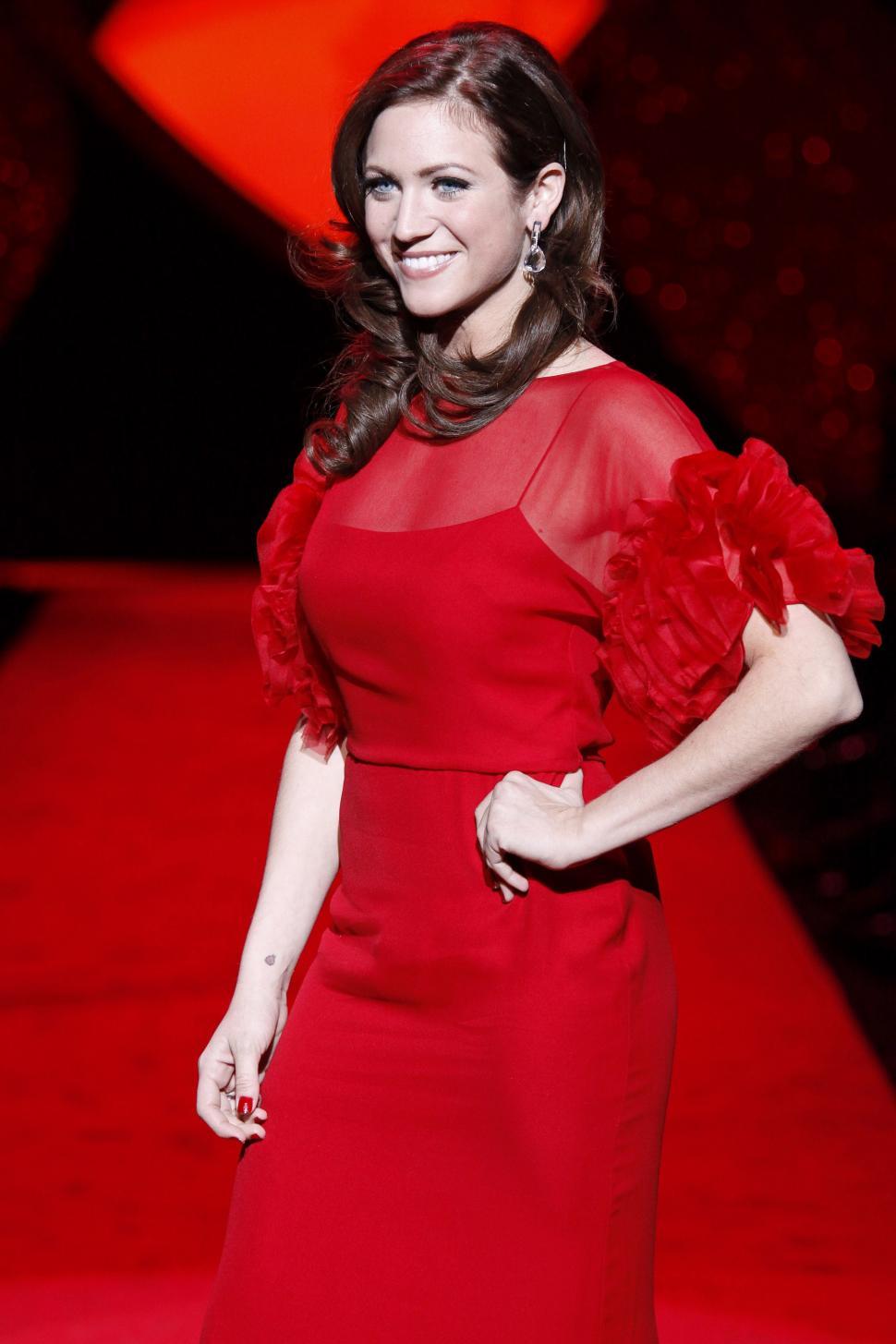:max_bytes(150000):strip_icc():focal(711x326:713x328)/joanna-carson-johnny-carson-080425-ef84ab9a5fe74660a30098f00c611f2b.jpg)
A chapter in Hollywood’s glittering past and the annals of late-night television has quietly drawn to a close. Joanna Carson, the distinguished model whose enthralling romance and notably costly divorce from the legendary talk show king, Johnny Carson, became an indelible part of his comedic repertoire, has passed away at the age of 93. Her passing marks the end of a remarkable life, one that was intricately woven with high fashion, influential figures, and a profound resilience that allowed her to emerge as far more than merely a punchline in a famous narrative.
The news of Joanna Carson’s death, unlike the public spectacle that often surrounded her life, was not disseminated through formal press releases. Instead, it surfaced in a manner characteristic of our contemporary age: shared among friends online and through a poignant tribute issued by the Elizabeth Taylor AIDS Foundation. This organization, in its remembrance, honored her alongside the notable billionaire Wallis Annenberg, painting a picture of a life that, despite its very public moments, concluded with quiet dignity.

Her captivating saga with Johnny Carson remains a quintessential piece of 20th-century celebrity lore, a story that unfolded with all the drama and sparkle one might expect. Their journey began in 1971, within the exclusive confines of New York’s iconic 21 Club. This venue, renowned as the ultimate playground for the elite, provided the perfect backdrop for the convergence of two powerful personalities.
At the time of their fateful meeting, Johnny Carson stood as the undisputed monarch of television, his reign over the airwaves unchallenged. Joanna, then one of Manhattan’s most sought-after models, was a “ravishing divorcée” who was diligently carving out her own path. Johnny himself, openly enchanted by her presence, candidly admitted to PEOPLE magazine that he was “flirting like a sophomore,” instantly captivated by her allure.

Their initial encounter swiftly blossomed into a romance of intense passion and commitment. Their very first date, which coincidentally coincided with Johnny Carson’s 46th birthday, ignited a courtship so profound and all-consuming that he felt compelled to contact her every single afternoon at precisely 4:30 p.m. This ritual continued unfailingly for an entire year, underscoring the depth of his infatuation and the nascent bond between them.
Their subsequent decade-long marriage became a recurring feature in the society pages, chronicled with keen interest by a fascinated public. However, it was the dramatic and ultimately “spectacular divorce” that truly cemented their place in popular culture, leaving an indelible mark that resonated far beyond the tabloids. It transformed their personal struggle into a shared national experience.

In a stroke of comedic brilliance that was uniquely his own, Johnny Carson skillfully managed to transmute his profound “personal and financial pain” into veritable “ratings gold.” Night after night, from the familiar perch of The Tonight Show set, he would lean into his microphone with that characteristic twinkle in his eye and deliver witty remarks about the immense fortune his third wife was purportedly costing him. This ongoing public discourse, born from their costly separation, evolved into “one of America’s most famous inside jokes,” a running gag that captivated millions and made their private struggles a topic of widespread public amusement.
Yet, long before she found herself the subject of Johnny Carson’s late-night monologues, Joanna Ulrich was a woman imbued with significant ambition and an independent spirit. Her formative years were spent in New York, where she cultivated a drive that would define much of her life. Her first glimpse into the realm of high-profile living came with her marriage to the world-renowned backgammon player, Tim Holland, with whom she welcomed her son, Joe.
:max_bytes(150000):strip_icc():focal(707x241:709x243)/joanna-carson-080425-c6ace393ac0c41d48bf045c820495838.jpg)
When that marriage concluded, Joanna did not recede from public life. Instead, she demonstrated her remarkable adaptability and determination by pivoting strategically, embarking on a highly successful career as a model in the fiercely competitive fashion world of Manhattan. This transition showcased her ability to navigate and excel in demanding environments, proving her mettle beyond her relationships.
Her divorce from Johnny Carson was a lengthy and arduous process, ultimately culminating in their separation in 1982 and their official divorce in 1985. The settlement reached was a staggering $20 million, a figure that underscored the magnitude of the wealth involved and the high stakes of their dissolved union. While she had initially sought a substantial sum of $220,000 per month, the final agreement, as reported by The Los Angeles Times, awarded her $35,000 a month, a testament to the complexities of such high-profile legal battles.
Beyond the monetary award, the landmark settlement further underscored her resilience, granting her not only a significant financial sum but also tangible assets that spoke to her enduring independence. She was awarded the couple’s magnificent Bel Air home, a symbol of the opulent life they once shared, along with valuable apartments in New York City. Furthermore, she was permitted to retain a portion of their exquisite art collection, including cherished works by the iconic artist Picasso, highlighting her cultured taste and personal property.

Joanna Carson remained a constant and recognizable figure within a select jet-set social class, a woman who possessed an inherent understanding of the immense value and influence held by both beauty and strategic connections. Her life story illustrates her capacity to not only inhabit but thrive within elite circles, deftly leveraging her considerable charm and social acumen.
Her influence extended far beyond the glittering world of celebrity and fashion. Joanna Carson was deeply committed to philanthropic endeavors, working closely with SHARE (Share Happily and Reap Endlessly). This esteemed organization, which holds the distinction of being the oldest charity in Beverly Hills, was founded by the wives of the legendary Rat Pack, establishing a legacy of charitable giving rooted in the heart of Hollywood’s elite.
SHARE’s vital mission, which Joanna passionately championed, is dedicated to raising crucial funds for children who are disabled, as well as those who have suffered abuse or neglect. Her unwavering commitment to this cause underscored her profound empathy and her desire to make a tangible difference in the lives of vulnerable children, embodying a spirit of generosity that left a lasting impact.

Beyond her charitable work and her life as a socialite, Joanna Carson also made notable contributions to the world of performing arts as a producer. Her keen eye for compelling narratives and her support for creative endeavors led her to produce theatrical productions. These included the thought-provoking American Psycho, the macabre yet captivating Beetlejuice, and the critically acclaimed American Buffalo, demonstrating her diverse interests and her active role in the cultural landscape.
Her passing has elicited a wave of heartfelt tributes from those who knew her and admired her work. Mourners have taken to online platforms, universally describing Joanna as an “extraordinary woman,” reflecting the profound respect and affection she garnered throughout her life. The Elizabeth Taylor Aids Foundation, in its digital tribute, further elaborated on her impactful generosity, stating, “Such a generous individuals who will be so very missed.”
Further online sentiments continued to praise her indelible character and humanitarian spirit. One poignant post acknowledged her unique background, noting, “Extraordinary women- born into different family systems faiths and traditions-who both used their gifts and talents to help people and animals that are discounted.” Another heartfelt tribute from the Elizabeth Taylor Aids Foundation itself encapsulated the depth of their appreciation: “2 such wonderful women. They were such angels to ETAF,” a powerful testament to her compassionate nature and lasting positive influence.



